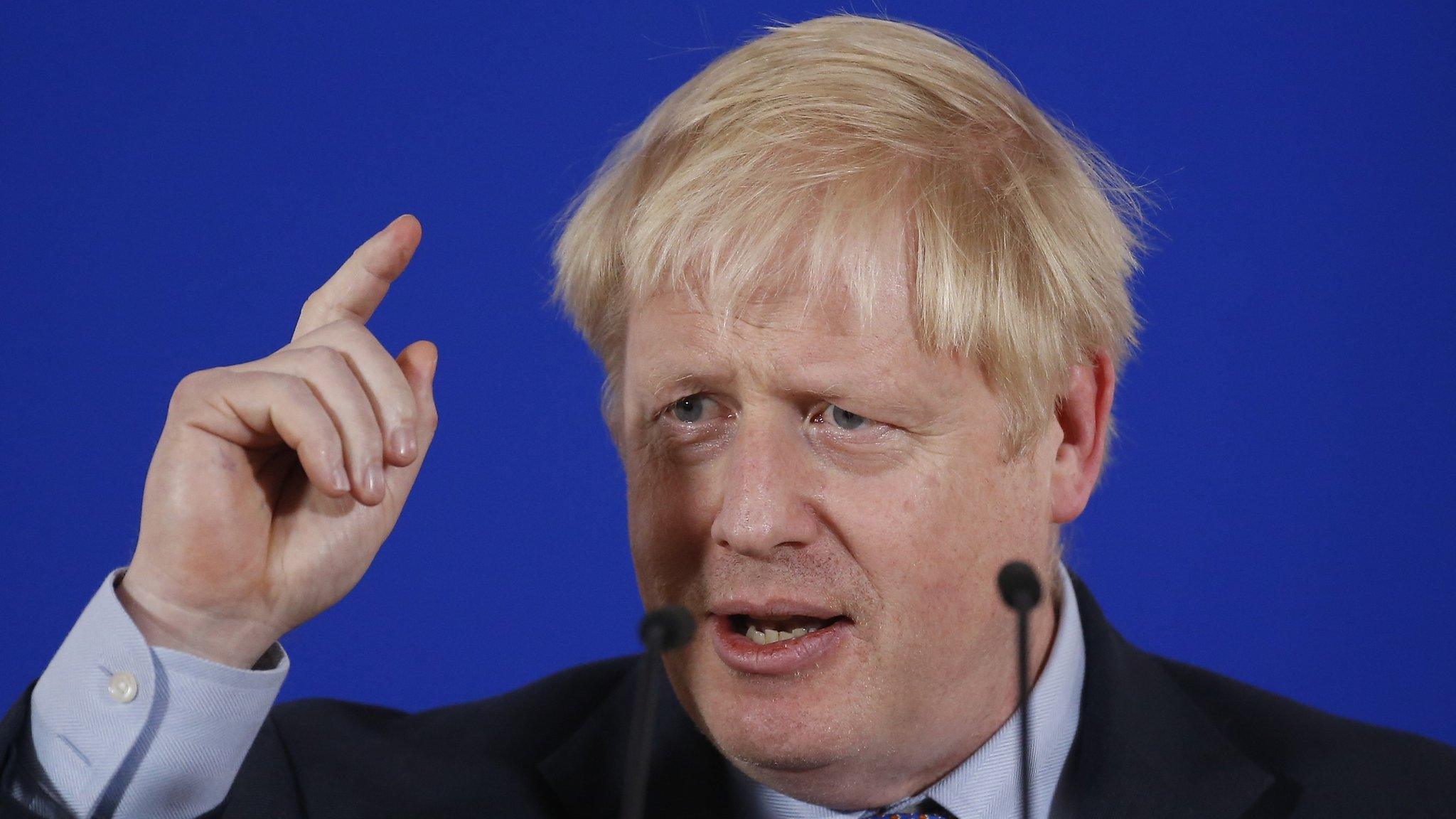Brexit: What is the Letwin amendment and will it pass?
- Published

The latest gambit by the alliance of MPs around Sir Oliver Letwin looks like a real problem for the government whips, as they prepare for Saturday's critical vote on the new-look Brexit deal.
The amendment would withhold approval of the deal, until the legislation to enact it was safely passed - a move that would automatically trigger the "Benn Act" and force the prime minister to request a further postponement of Brexit until 31 January.
Sir Oliver's amendment is a cunningly-crafted proposition which, crucially, could be voted for by MPs who want a deal, but don't trust this one, and don't trust the government.
It rests on the idea that were Parliament to approve the deal for the purposes of the Benn Act now, there might then be a danger that the subsequent legislation to enact it might be, somehow, derailed, resulting in a no-deal exit on 31 October.
With the Benn Act out of the way, they believe that some manoeuvre, some legislative judo move, by factions inside and outside the government, who favour a "clean Brexit" could leave no time for any effective counter… and Britain would be out, with no deal.
This reflects the sheer level of distrust that has accumulated over several cycles of Brexit angst.

The government's attempt to prorogue Parliament in September has permanently scarred the soft Brexit/Remain faction; they might be offered some reassurances, but they could well demand a pact signed in blood.
So never mind the plausibility of the betrayal scenario, look at the support for the amendment.
It is signed by Sir Oliver, the former Chancellor Philip Hammond, and the former Work and Pensions Secretary David Gauke - the big names of the rebel Conservative group who lost the party whip - and by Nick Boles, one of the apostles of a "Norway Option" compromise.
That suggests the amendment may well have enough (ex) Tory support to pass… unless there's a countervailing Labour rebellion in the government's favour.
There are certainly a number of Labour MPs (and independents of various stripes) who, like Mr Boles, yearn for a Brexit deal they can back.
But this may not be it.
'Singapore-on-Thames?'
A key factor is that they want a deal which keeps the UK in close alignment with the EU - particularly on labour standards, environmental protection and consumer safeguards, and they detect what they believe is a weakening of the government's commitment to those "level playing field" commitments.
Brexit Secretary Steve Barclay insisted at this week's Brexit Select Committee meeting that the government was not seeking to turn Britain into a deregulated "Singapore-on-Thames", competing with the EU on its very doorstep.
Labour voices, like the influential former minister Pat McFadden question whether, after a journalistic career which produced scores of columns denouncing EU red tape, the PM would really keep those protections in place.
Crunching the numbers as MPs prepare for key Brexit vote
The Letwin amendment would invite the government to put forward a bill to implement their deal - but bills are amendable, and you can bet that everything from a requirement to stay in a customs union to making the whole thing subject to a further referendum would then be proposed.
(Although, to succeed, a referendum amendment would require Labour support, and Labour's internal wrangling on that point is some way from being resolved.)
And with a minority government struggling for control of the Commons, ministers could well see a number of unwelcome changes imposed by MPs.
Update
The government seems to be all but conceding that the Letwin amendment will pass, and is making its dispositions accordingly - announcing plans to hold a "meaningful vote" on the Withdrawal Agreement Bill on Tuesday.
This would corner MPs into a Yes/No vote on their deal, and given there are a fair number of Labour rebels, the government could well win.
Certainly, the vote would put any number of Labour MPs - and MPs for other parties - from Brexit-voting constituencies in a very awkward place.
Watch out for an attempt to attach a second referendum to the deal in some way.
But the success of that effort would require full-throated support (and whipping of their MPs) from the Labour Party. They are not there yet, and they may never be.
If the government wins a "meaningful vote" on Tuesday, the legislation to underpin the new deal would then go forward - and that would provide further opportunities to attempt amendments.
Winning the next meaningful vote is only the beginning of a new phase of Brexit; it's not even the beginning of the end.
- Published18 October 2019

- Published21 October 2019

- Published18 October 2019

